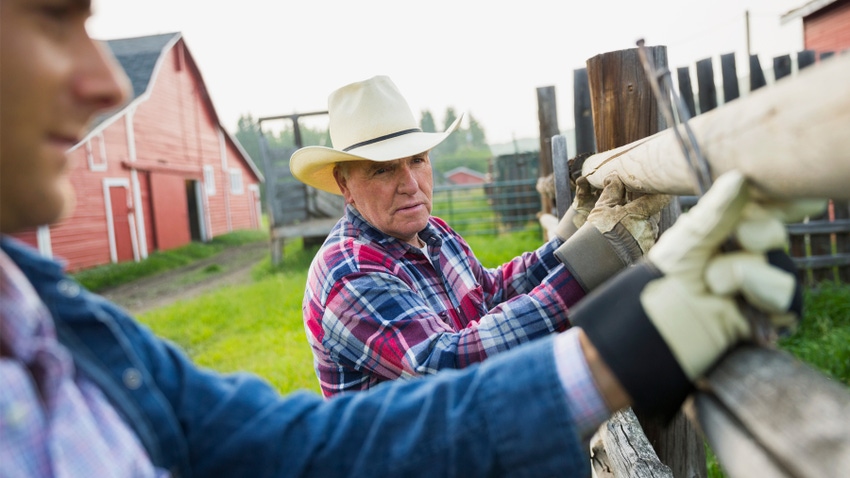
No one likes to think about what will happen when they can no longer farm and ranch. Planning for what will happen to your family’s farming and ranching legacy after you die is not an enjoyable task for many. But the alternative to not planning is far worse than the time you spend with an adviser going over your options now.
“If you don’t plan, don’t worry — someone else will plan for you,” says Jordan Gottlieb, New York Life financial services professional. “The IRS will help you plan.”
Gottlieb spoke at the 2023 Cattlemen’s College in New Orleans, about how farmers and ranchers can protect their family farm and ranch heritage so that future generations will have an opportunity on the land.
The first thing to consider, Gottlieb says, is that “equal isn’t fair, and fair isn’t equal.” Many times, parents want to be fair to all their children, whether they are actively farming or not, so they set it up so everyone inherits a share of the business. But that often leads to family strife between inheriting siblings, and causes undue financial hardship on the children who have to buy out their siblings in order to continue farming the family farm.
Ask yourself, Gottlieb says, who your successors will be, and how and when do you expect the transfer of your assets to take place, and what will be included in that transfer? Will the farming sibling inherit the farm or ranch business and the non-farming siblings inherit the life insurance policies and non-farm assets, for example?
The next thing is to take an honest stock of what you have that’s attached to the farm business and what is non-farm related.
List all the assets you own, and include any leased assets and the agreements attached to them.
Assess the true value of those assets. And, include any debt you still owe on those assets, such as land mortgages, equipment payments, and more.
Make sure you know how those assets are titled, or whose name is on the deed. Gottlieb gave the example of a plot of farm ground that was still titled in the first spouse’s name, even after a divorce, and at the death it was discovered they still owned that large portion of the farm.
Gottlieb says that many farmers and ranchers wait for estate planning because they either aren’t ready to cede control of the operation, or they don’t want to think about dying. And yet, putting off the structuring of your estate will cause more trouble for your heirs than just making a decision today.
Consider, he says, a farmer who is in his 70s or 80s, with no plans of actively retiring from the farming business. They’re still running the combine while their adult child is farming with them. A lot of the credit the bank is extending to the farm, Gottlieb explains, is based on his creditworthiness. But, when he passes away, the adult son goes to the bank, and now that credit line is no longer there. In this case, a trust could have helped that situation.
“You need to consider what happens if someone dies or is disabled,” Gottlieb says.
Gottlieb encourages farmers and ranchers to meet with an estate planning professional and discuss what options may work for their specific needs. Some that you might consider researching include:
Wills. These are the very basis of your planning documents, but they aren’t the only ones you’ll need, Gottlieb says. They express your intent, and can also establish guardianships for minor children or family members with special needs who will need care.
Buy-sell agreements. These can protect the farming heir from going into debt to buy out non-farming heirs. These are especially important to help with multiple-generation farming operations, to protect all partners.
Irrevocable trusts and irrevocable life insurance trusts. These can help protect assets from estate taxes. With recent spikes in land values, farmers and ranchers may want to explore these options now, before the estate tax rules change in 2026.
Powers of attorney. Everyone should have financial powers of attorney, health care powers of attorney, health care directives, and HIPAA (Health Insurance Portability and Accountability Act) authorizations on hand in case there is an accident that will cause you to be hospitalized or placed in long-term care. These ensure your wishes are carried out and the farm is protected if you are incapacitated.
Overall, Gottlieb encourages families to sit down and discuss — on a regular basis — the plans for the farm or ranch so that there are no surprises. And seek professional advice to make sure you have the documents and the tools you need to fill your wishes.
About the Author(s)
You May Also Like






